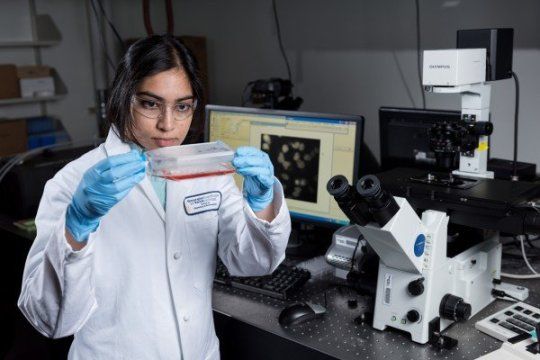A nanoparticle commonly used in food, cosmetics, sunscreen and other products can have subtle effects on the activity of genes expressing enzymes that address oxidative stress inside two types of cells. While the titanium dioxide (TiO2) nanoparticles are considered non-toxic because they don’t kill cells at low concentrations, these cellular effects could add to concerns about long-term exposure to the nanomaterial.
Researchers at the Georgia Institute of Technology used high-throughput screening techniques to study the effects of titanium dioxide nanoparticles on the expression of 84 genes related to cellular oxidative stress. Their work found that six genes, four of them from a single gene family, were affected by a 24-hour exposure to the nanoparticles.
The effect was seen in two different kinds of cells exposed to the nanoparticles: human HeLa cancer cells commonly used in research, and a line of monkey kidney cells. Polystyrene nanoparticles similar in size and surface electrical charge to the titanium dioxide nanoparticles did not produce a similar effect on gene expression.
